Internal Auditing Checklist for Businesses in UAE - 2025
In today’s dynamic business environment, internal audits are no longer just a compliance requirement but a critical component of good corporate governance.
For businesses operating in the UAE, conducting regular internal audits offers numerous benefits that extend beyond simply meeting regulatory obligations. Internal audits provide a valuable mechanism for identifying and mitigating risks, such as fraud, operational inefficiencies, and non-compliance with laws and regulations.
By proactively assessing internal controls and processes, businesses can enhance operational efficiency, improve data accuracy, and strengthen their overall financial health.
Furthermore, internal audits play a crucial role in ensuring compliance with the UAE’s robust regulatory framework. By identifying and addressing any compliance gaps, businesses can avoid costly penalties and maintain a strong reputation.
Let’s understand more about the UAE internal audit checklist for 2025. Get VAT compliance checklist for businesses in UAE here.
Key Areas to Focus on in Your 2025 Internal Audit
A comprehensive internal audit should cover a wide range of areas within your business.
Key focus areas for 2025 include:
- Financial Controls: Scrutinize revenue recognition, accounts receivable, accounts payable, inventory management, bank reconciliations, and payroll processes.
- Operational Controls: Evaluate the effectiveness of procurement, production, sales, marketing, customer service, and information technology processes.
- Compliance Controls: Ensure compliance with relevant laws and regulations, including VAT, corporate tax, labor laws, and data privacy regulations.
- Governance and Risk Management: Assess the effectiveness of the board of directors’ oversight, evaluate risk management strategies, and review the internal control framework.
- Fraud Prevention and Detection: Implement and test anti-fraud measures, conduct fraud risk assessments, and investigate any suspected fraudulent activities.
Now, let us look at each point in detail.
1. Financial Controls:
Revenue Recognition and Revenue Cycle:
- Evaluate the accuracy and completeness of revenue recognition in accordance with relevant accounting standards (e.g., IFRS 15).
- Examine the controls surrounding order processing, invoicing, and customer collections.
- Assess the risk of revenue misstatements and implement appropriate controls to mitigate these risks.
Accounts Receivable and Payable:
- Review the accuracy and completeness of accounts receivable balances.
- Assess the effectiveness of credit and collection procedures.
- Analyze the accuracy and timeliness of accounts payable payments.
Inventory Management:
- Evaluate the accuracy of inventory counts and valuations.
- Assess the effectiveness of inventory control procedures, including ordering, receiving, and storage.
- Identify and address potential inventory shrinkage and obsolescence.
Bank Reconciliations:
- Review the accuracy and timeliness of bank reconciliations.
- Investigate any discrepancies between bank statements and accounting records.
- Assess the controls surrounding bank transactions.
Payroll Processing:
- Review payroll calculations, tax withholdings, and employee benefit deductions for accuracy and compliance with labor laws.
- Assess the effectiveness of internal controls to prevent payroll fraud.
2. Operational Controls
Procurement and Purchasing Processes:
- Evaluate the effectiveness of procurement procedures, including vendor selection, contract negotiation, and purchase order processing.
- Assess the controls in place to ensure the integrity and accuracy of procurement transactions.
- Identify and address potential risks related to fraud and corruption in procurement.
Production and Operations:
- Review production processes for efficiency, quality, and safety.
- Assess the effectiveness of inventory management and production planning.
- Identify and address any operational bottlenecks or inefficiencies.
Sales and Marketing:
- Evaluate the effectiveness of sales and marketing campaigns.
- Assess the accuracy of sales data and customer information.
- Review customer relationship management (CRM) processes and customer satisfaction levels.
Customer Service:
- Evaluate the quality and efficiency of customer service.
- Analyze customer feedback and identify areas for improvement.
- Assess the effectiveness of complaint-handling procedures.
Information Technology:
- Review the effectiveness of IT controls, including data security, access controls, and disaster recovery procedures.
- Assess the adequacy of IT infrastructure and resources.
- Evaluate the effectiveness of IT support and maintenance.
3. Compliance Controls
VAT Compliance:
- Ensure compliance with all VAT regulations, including accurate VAT reporting, input tax credit claims, and record-keeping requirements.
- Assess the risk of VAT audits and implement measures to mitigate these risks.
Corporate Tax Compliance:
- Ensure compliance with corporate tax regulations, including timely filing of tax returns and accurate tax calculations.
- Identify and address potential tax liabilities.
Labor Law Compliance:
- Ensure compliance with all applicable labor laws, including minimum wage, working hours, and employee benefits.
- Conduct regular reviews to ensure compliance with changing labor regulations.
Data Privacy and Cybersecurity Compliance:
- Ensure compliance with data privacy regulations, such as the UAE Personal Data Protection Law.
- Implement robust cybersecurity measures to protect sensitive data from unauthorized access and cyber threats.
4. Governance and Risk Management
Board of Directors Oversight:
- Evaluate the effectiveness of the Board of Directors’ oversight functions.
- Assess the Board’s role in setting strategic direction, approving major decisions, and overseeing risk management.
Risk Assessment and Mitigation Strategies:
Review the company’s risk assessment and mitigation strategies.
- Identify and evaluate key risks facing the business, including financial, operational, and reputational risks.
- Assess the effectiveness of risk management controls.
Internal Control Framework:
- Evaluate the effectiveness of the company’s internal control framework, including policies, procedures, and controls.
- Assess the adequacy of the internal control framework in mitigating risks and ensuring compliance.
5. Fraud Prevention and Detection
Implementing Anti-Fraud Measures:
- Implement and maintain anti-fraud controls, such as segregation of duties, access controls, and background checks.
- Utilize fraud detection tools and technologies, such as data analytics and machine learning.
- Educate employees about fraud risks and encourage them to report any suspicious activity.
Conducting Fraud Risk Assessments:
- Conduct regular fraud risk assessments to identify and prioritize potential fraud risks.
- Develop and implement appropriate controls to mitigate identified risks.
- Investigate any suspected fraudulent activity promptly and thoroughly.
Tips for Effective Internal Audits
-
Develop a Clear Audit Plan and Scope:
- Define the objectives and scope of the audit clearly.
- Develop a detailed audit plan that outlines the audit procedures, timelines, and resources required.
- Obtain management approval for the audit plan.
2. Utilize Technology and Data Analytics Tools:
- Leverage data analytics tools to identify trends, anomalies, and potential risks.
- Utilize audit software to automate audit procedures and improve efficiency.
- Employ data visualization techniques to present audit findings effectively.
3. Ensure Proper Documentation and Reporting:
- Document all audit procedures, findings, and conclusions clearly and concisely.
- Prepare comprehensive audit reports that communicate findings and recommendations effectively to management.
- Maintain adequate audit documentation for future reference and regulatory requirements.
4. Continuously Monitor and Improve Internal Controls:
- Regularly review and update internal controls to address evolving risks and business changes.
- Follow up on audit recommendations and monitor management’s response.
- Continuously improve the internal audit function to enhance its effectiveness and efficiency.
The Role of PROFITZ ADVISORY: The best Accounting & Bookkeeping Company in Dubai
PROFITZ ADVISORY, the best audit and assurance company in Dubai, can play a crucial role in assisting businesses with their internal audit needs. Our team of experienced auditors can provide a wide range of services, including:
- Conducting Internal Audits:
-
- Our experienced auditors can conduct comprehensive internal audits covering all aspects of your business operations.
- Developing Audit Plans:
- We can help you develop a tailored audit plan that addresses your specific risks and objectives.
- Providing Consulting Services:
- We can provide expert advice on improving your internal control framework and enhancing your risk management processes.
- Implementing Audit Software:
- We can assist with the selection and implementation of audit software to improve efficiency and effectiveness.
- Providing Training and Development:
- We can provide training to your internal audit team to enhance their skills and knowledge.
Benefits of Partnering with PROFITZ ADVISORY:
- Expertise and Experience:
Our team of experienced auditors has a deep understanding of best practices in internal auditing.
- Objectivity and Independence:
We provide objective and unbiased assessments of your internal controls.
- Customized Solutions:
We tailor our services to meet your specific needs and objectives.
- Cost-Effective Solutions:
We offer competitive pricing and can help you optimize your audit costs.
- Improved Efficiency:
Our expertise and use of technology can help you streamline your audit processes.
By partnering with PROFITZ ADVISORY, you can ensure that your internal audits are conducted effectively and efficiently, providing valuable insights, helping you mitigate risks, and enhancing your overall business performance.
Conclusion
Internal audits are essential for businesses in the UAE to identify and mitigate risks, ensure compliance, and improve overall performance.
By conducting regular and effective internal audits, businesses can enhance their financial stability, improve operational efficiency, and build a strong foundation for future growth.
PROFITZ ADVISORY can be your trusted partner in navigating the complexities of internal auditing. Our team of experienced professionals can provide the expertise and support you need to conduct thorough and effective audits.
Contact us today to learn more about our internal audit services and how we can help you achieve your business objectives.








